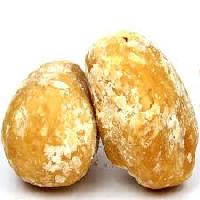From Sugarcane Product to Biofuels: The Diverse Uses of Sugarcane
From Sugarcane Product to Biofuels: The Diverse Uses of Sugarcane
Blog Article
Exploring Sugarcane Products: Versatile Profits and makes use of
The expedition of sugarcane items reveals a remarkable selection of applications that prolong well beyond the acquainted realm of sweeteners. As we check out the diverse payments of sugarcane, one may wonder just how these diverse usages can reshape sectors and way of lives in a rapidly advancing world.
Review of Sugarcane
Although sugarcane is usually connected primarily with sugar manufacturing, it is a flexible plant with a rich background and various applications. Grown in subtropical and exotic regions, sugarcane grows in warm environments and well-drained soils, contributing significantly to numerous economic climates worldwide. This perennial turf, belonging to the category Saccharum, can grow to elevations of up to 4 meters, showcasing its robust nature.
Past its primary function in sugar removal, sugarcane serves as an essential source for various byproducts. The fibrous deposit, recognized as bagasse, is used for creating bioenergy and as a basic material for producing paper and eco-friendly products. Furthermore, molasses, a byproduct of sugar refining, is rich in nutrients and frequently made use of in animal feed and fermentation processes.
Sugarcane likewise plays a considerable duty in traditional medicines and cultural practices in several regions, illustrating its significance past industrial usage (sugarcane product). With the boosting emphasis on lasting farming techniques, sugarcane is being checked out for its capacity in biofuels and carbon capture, placing it as a crucial player in the transition towards renewable energy sources. Hence, the flexibility of sugarcane expands much past the confines of sugar manufacturing
Sugarcane in Food Products


Beyond sweeteners, sugarcane is the resource of energy-rich products such as jaggery and panela, which are typical unrefined sugars made use of in numerous societies. These products not just sweeten foods however additionally impart dietary benefits and special flavors.
Sugarcane juice, a rejuvenating drink enjoyed in many tropical areas, showcases the plant's flexibility. It is usually consumed fermented or fresh into alcohols like rum.
In addition, sugarcane fibers, referred to as bagasse, are occasionally utilized to create food product packaging materials, highlighting the eco-friendly advantages of sugarcane processing. Generally, sugarcane's payment to food is diverse, boosting flavors, offering dietary worth, and playing a significant function in culinary traditions all over the world.
Industrial Applications of Sugarcane
In different markets, the adaptability of sugarcane expands much past its culinary applications. Sugarcane functions as a crucial raw material in the manufacturing of biofuels, specifically ethanol, which is increasingly used as a sustainable energy resource. this website This biofuel is obtained via fermentation and purification procedures, giving a sustainable alternative to nonrenewable fuel sources and adding to a reduction in greenhouse gas discharges.

Additionally, the sugarcane market has found applications in pharmaceuticals, where its components are used in the solution of numerous medical products. The natural compounds removed from sugarcane show antioxidant and antimicrobial homes, improving the effectiveness of certain medications.
Last but not least, sugarcane is indispensable to the production of a variety of chemicals, including glycerol and natural acids, which are essential for different industrial processes. These applications highlight sugarcane's substantial function in promoting commercial sustainability and technology.
Environmental Benefits of Sugarcane
The complex applications of sugarcane not just improve industrial procedures yet likewise contribute dramatically to environmental sustainability. As a renewable energy, sugarcane farming plays a vital role in carbon sequestration, taking in substantial quantities of carbon dioxide from the ambience. This process aids reduce climate modification by reducing greenhouse gas focus.
Furthermore, sugarcane results, such as bagasse and molasses, provide environmentally friendly choices to traditional products. Bagasse, the fibrous deposit after juice removal, can visit site be made use of as a biomass fuel, minimizing reliance on nonrenewable fuel sources and advertising cleaner energy resources. Additionally, molasses can be changed right into bioethanol, even more sustaining sustainable energy campaigns.
Sugarcane farming also promotes biodiversity and dirt health. Sustainable farming practices, such as intercropping and crop turning, enhance soil fertility and minimize disintegration. The crop's deep root system aids in water retention, consequently sustaining local communities and enhancing durability versus dry spell.
Health And Wellness Advantages of Sugarcane
Rich in essential nutrients and natural sugars, sugarcane supplies countless health advantages that make it an important addition to a balanced diet plan. Its high fiber web content aids in food digestion, promoting intestine wellness and preventing constipation. Additionally, sugarcane gives antioxidants, which combat oxidative stress and may decrease the danger of chronic diseases.
Furthermore, sugarcane juice is understood for its hydrating residential or commercial properties, making it an outstanding beverage choice, specifically in warm environments. The natural sugars present in sugarcane give a quick energy increase, valuable for professional athletes and those participated in physical activities. It also contains vital nutrients, such as vitamin C, magnesium, potassium, and calcium, which contribute to total health.
Research studies suggest that sugarcane might help manage blood sugar level levels, making it a more suitable sugar for individuals with diabetes when eaten in moderation. read this post here Moreover, its anti-inflammatory properties can sustain liver health and wellness and help in detoxing.
Final Thought
To conclude, sugarcane emerges as a very versatile plant with significant contributions to different sectors. Its varied applications in food, commercial uses, and ecological sustainability underscore its value. The spin-offs of sugarcane, such as bagasse and molasses, facilitate environment-friendly practices, while its health and wellness advantages enhance total well-being. The diverse nature of sugarcane not just supports economic development yet likewise advertises lasting growth, highlighting its value in contemporary culture.
Although sugarcane is often linked mainly with sugar manufacturing, it is a versatile crop with a rich background and various applications.Past its key duty in sugar removal, sugarcane offers as an important resource for various by-products. Largely understood for producing sugar, sugarcane is changed into granulated sugar, brown sugar, and molasses, each offering unique culinary objectives.Rich in vital nutrients and natural sugars, sugarcane uses many wellness benefits that make it a beneficial enhancement to a balanced diet plan. The natural sugars existing in sugarcane offer a quick energy boost, useful for athletes and those engaged in physical activities.
Report this page